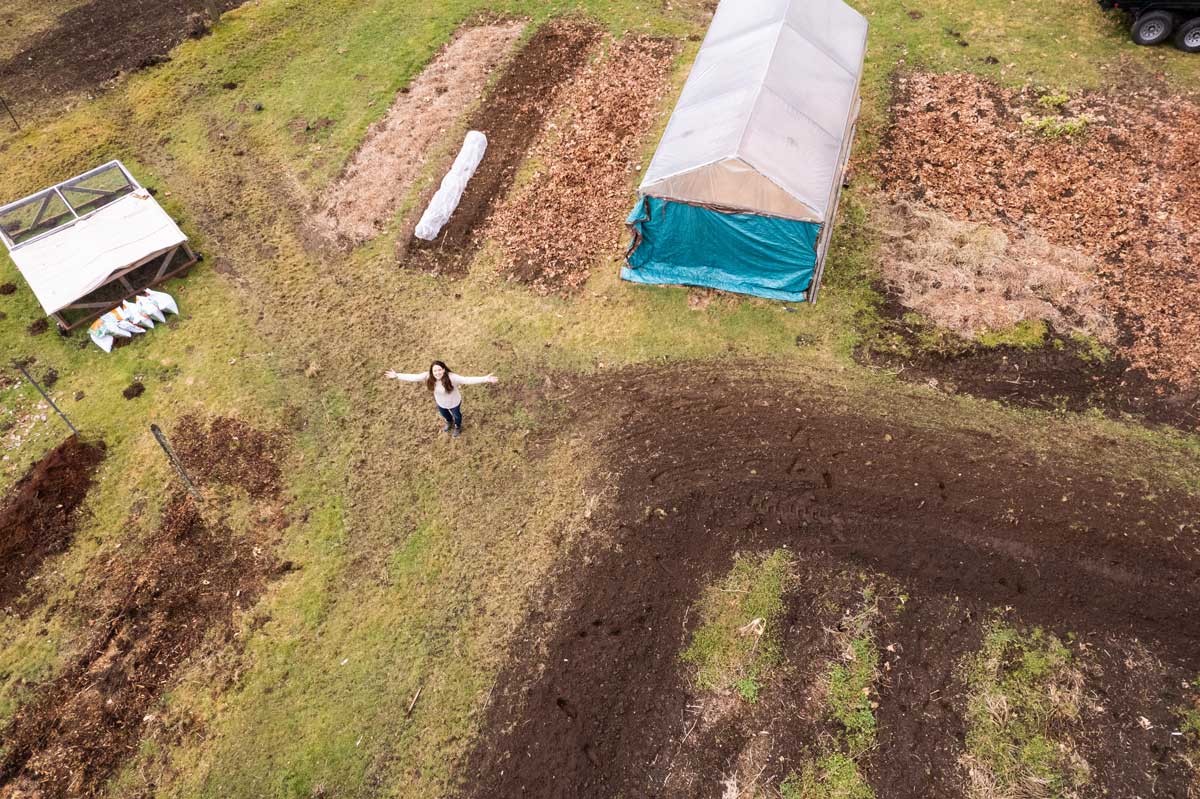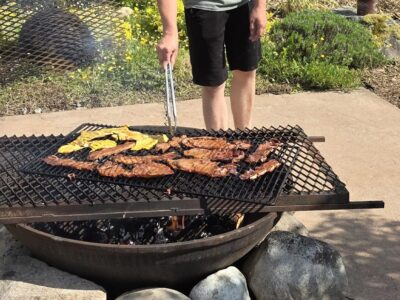In this episode, we’re talking to land-buying expert Dave Denniston all about purchasing land for on or off-grid living, ensuring a clean title and affordable options.
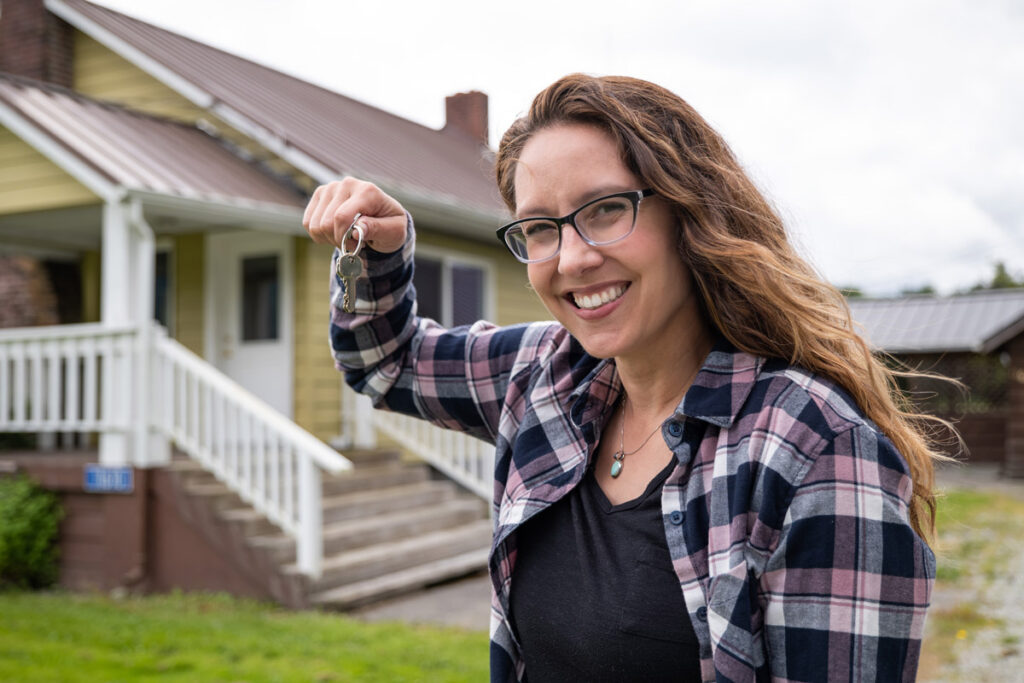
If you’ve ever wanted to buy land, you may realize early on that it can be an intimidating process.
As you know, earlier this year we bought a 40-acre property up the road from us. Our current home is on land that we purchased from a family member over 20 years ago, and it’s on the land where I grew up my whole life.
Because I’ve lived in this valley my entire life, I know when the floods come, exactly how high the water will get, the direction the winds blow in throughout the year, etc. I know all the little things that may have taken someone else by surprise once they moved in.
Because of this, we didn’t need to ask many questions about buying this land. This got me thinking, if I weren’t very familiar with buying property or the land for which I was buying, I wouldn’t know where to start. And that’s where Dave comes in.
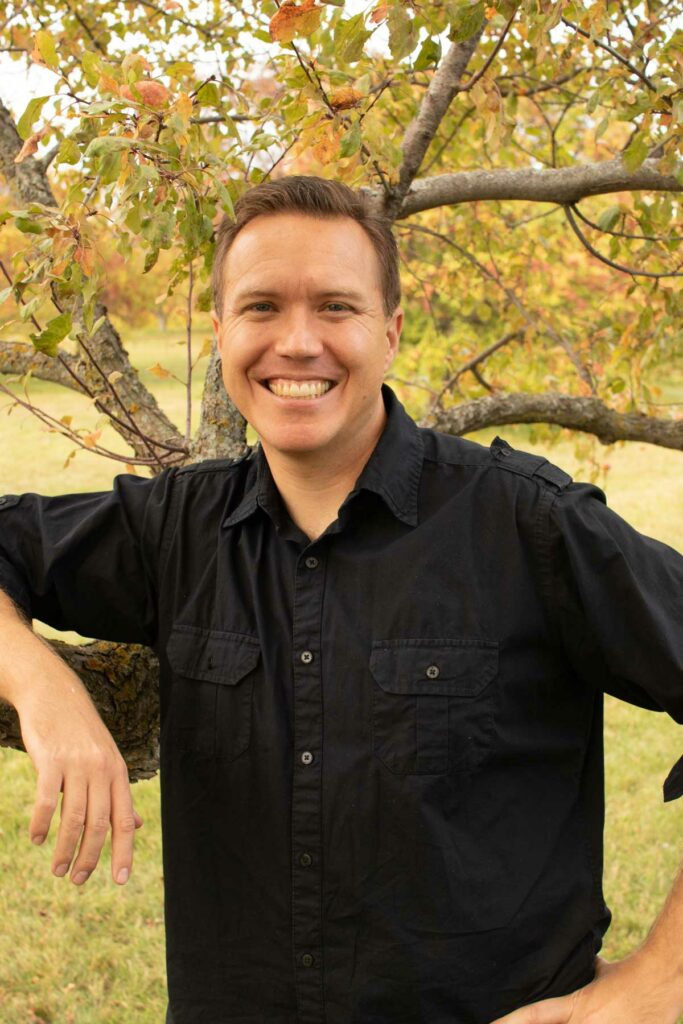
Dave Denniston runs 6 different businesses. He’s what I would call a serial entrepreneur. His businesses include three land-flipping companies and he’s sold over 921 pieces of land. He currently has 350+ notes where people are paying him monthly for their land.
He can definitely speak to the highs and lows as an entrepreneur and a husband, especially when it comes to taking risks and the hustle it requires to get the job done.
Doing Your Due Diligence
I asked Dave, if you’re looking to buy a property in an area you’re not familiar with, how do you do your due diligence on property research to know exactly what you’re getting into?
He says to start by knowing how much the investment is. If you’re buying a piece of property for $3,000, then you probably don’t need to worry about doing too much due diligence, as this isn’t a large risk.
However, if it’s a $500,000 property, you’d better do your due diligence and know exactly what you’re getting into!
Basic Due Diligence
When buying a piece of property, there are some basic things you should know about the land before proceeding. This basic due diligence can usually be done from a computer and shouldn’t take more than an hour.
- Satellite Imaging – Do some basic satellite imaging of the property. Looking at the outline to start. If you have a property that’s really skinny, there’s usually a setback allowance from the city, so Dave generally isn’t interested in land like that. Knowing the basic perimeter can be one way to weed out a lot of properties right from the start.
- Confirming Ownership – Confirming the owner of the property is important. Know when they bought it. And can you confirm this person is who they say they are?
- Neighbors – Look to see who the neighbors are around the property. Maybe the current owner owns multiple properties in the area and is willing to sell multiple properties.
- Taxes – Know how much taxes will be beforehand. Also be aware if there are back taxes. This step falls more into the advanced due diligence, but it’s worth mentioning here.
- Title – Look at the chain of the title to know how the property has changed hands over time.
- Legal & Physical Access – Legal access means whether you have the legal right to get to the property. Oftentimes this is by road, but you need to know whether this road crosses any other property lines. Also, can you physically get to the property? Sometimes roads aren’t well maintained by the county. There may need to be a lot of road clearing before you can actually get to the property, and you’ll need to factor this into the initial costs. Dave says about 95% of the properties he buys have both legal and physical access. The other 5% are a gamble he’s willing to take.
- Easements – Do you have an easement with neighboring properties? If you have a landlocked property, you’ll need legal easements from the neighboring owners to allow you access across their property to your own. There are cases where properties never had an easement set up, and the neighbors aren’t too thrilled about allowing access through their property.
Advanced Due Diligence
If, after you’ve done your basic due diligence, everything still looks good for a property, then you’ll get into the advanced due diligence. This is when you’ll likely need to pick up the phone and contact some people to find the answers you’re looking for. Though this shouldn’t take too long, it can be a matter of days until you have all your answers.
- Zoning – Call the county Planning and Zoning Department (or Community Development) and ask how the property is zoned. What does that mean with the county regarding what you can and can’t do on the land?
- Septic – Are there rules with septic systems? If your property doesn’t already have septic, what are the regulations you’ll need to know about?
- Back Taxes & Liens – Are there back taxes or liens on the property? You’ll want to know about this before you proceed with the purchase.
- Land Survey – Have the land surveyed. Dave has seen where he’s buying a 50-acre plot of land, but when the land surveyor goes out, it’s actually far less acreage than stated. This could save you thousands of dollars on a piece of land.
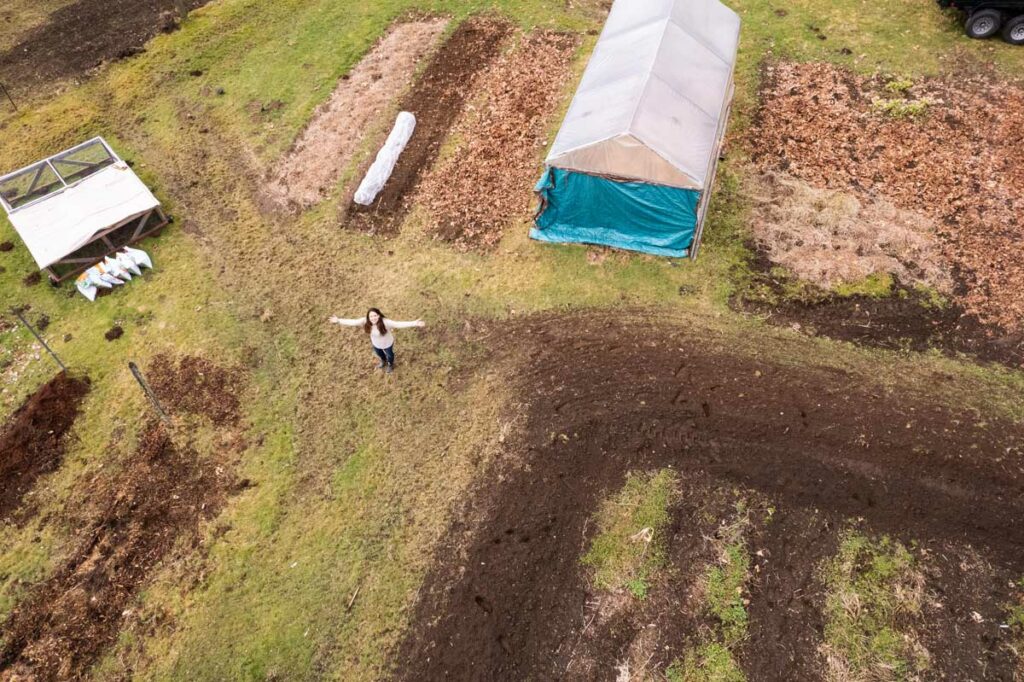
Acquiring Land
I asked Dave to share his process when it comes to acquiring land, and this is what he shared:
Pick a County
Dave’s first step is to know the counties he’s interested in buying property in. To do this, he figures out what price point he wants for the property size.
Then he goes to a website such as Lands of America or Land Watch and put in a filter based on acreage size and price. This will filter out a lot, then he zones in on a state and a county and narrows it down that way.
Send a Letter
Once the properties are narrowed down, Dave then creates a list and sends everyone on that list a letter. This is called a “Blind Offer Letter.”
This can be a great motivator for people who had dreams of building on a property but never actually got around to it, so they’re willing to let it go, especially when they don’t need to go through the hassle of trying to find a buyer.
Tips for Writing a Letter or Mailer
I asked Dave to share his tips on writing a Blind Offer Letter. He says it depends on how valuable the property is to you. But the first step is to do something that makes yourself stand out. A couple options are:
- Do a 3D mailer. Dave has one he sends out that includes a pair of handcuffs. On the mailer it asks the question, “Are you handcuffed to your property?” and includes his name and contact information.
- If you’re only writing three or four mailers, you could hand-sign them to make them have a personal touch.
Tax Deed Auction
Another way to procure properties is to attend tax deed auctions. These can be either online or in person. Before you go, it’s ideal to review the properties on the list.
Take the properties and run them through the basic due diligence checklist and start deciding which properties you’re interested in.
With a tax deed auction, Dave recommends knowing your max limits on properties and not going above that. At auctions, you can easily get caught up in the action (especially if you’re competitive like me!) and bid too high for something that’s ultimately not worth it.
Generally speaking, Dave says that the fewer the number of properties available at an auction, the more competitive that auction will be. The larger the number of properties, the less competitive it will be.
Tax Lien Foreclosures
Acquiring properties through tax lien foreclosures is another way Dave buys land. What happens with a tax lien foreclosure is that someone hasn’t been willing to pay property taxes on a property. After a few years, Dave goes in and forecloses on the property.
This can happen when someone has died, and the relatives aren’t wanting to go through probate.
This method can often take a lot longer. Dave says about 10% of the properties he buys are from tax lien foreclosures.
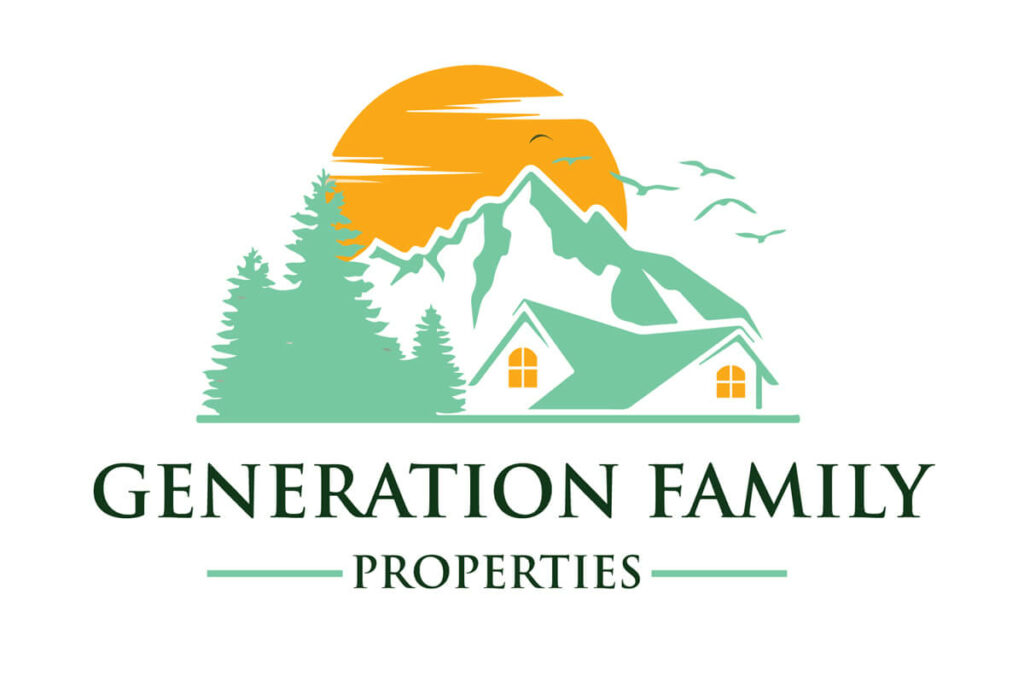
Getting Approved for Land
Most people don’t have the cash to go and buy a house or property outright. They usually put a certain amount of money down and make payments through a mortgage.
However, when it comes to raw land, most banks won’t give you a loan. So Dave says there are companies like his, Generation Family Properties, where you can get owner financing.
This means Dave’s company actually buys the land, and you make payments to him until you’ve paid for the land. He essentially becomes the bank!
American Blossom Linens
American Blossom Linens is the sponsor for this podcast episode. They’re 100% made in the USA and have been in business for over 120 years. American blossom linens make 100% organic cotton sheets and towels.
This past summer I received my first set of sheets and was immediately impressed. They kept us cool during the summer months and everytime I went to wash them, I just couldn’t get myself to put on one of my old sets of sheets.
Now I just wash my sheets and put them right back on because none of our other sheets are as comfortable and soft. As we’re moving into the winter months, I’m incredibly happy with how warm they keep us as well!
Aside from the sheets, I have my eye on their towels. As I was talking with Janet, the company’s owner, she was sharing that there was a drought in Texas, where they source their organic cotton. Due to the drought, the company will run out of organic cotton this year. So if you want to ensure you’re getting 100% organic sheets, you’ll want to order as soon as possible.
American Blossom Linens offers a two-year risk-free trial on their products. So go and snag yours and get an additional 22% off with coupon code “PIONEERINGTODAY22” at checkout.

Where to Find Dave
- On his website, Generation Family Properties.
- His podcast called Land Stories.
- If you’re interested in getting in touch with Dave, you can reach out to his sales gal, Christy, at [email protected].
- YouTube
More Posts You May Enjoy
- Homesteading 101: Back to the Basics Series
- Time & Budget Saving Tips from the Great Depression
- 5 Life Lessons from the Great-Depression
- Great Depression Era Money Saving Tips w/ Potatoes
- 7 Depression Era Tips to Stretch Your Food Budget
- 8 Depression Era Tips to Save Money Now
- Time Management Skills for the Homestead
[fusebox_transcript]
